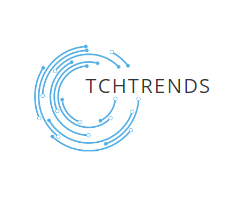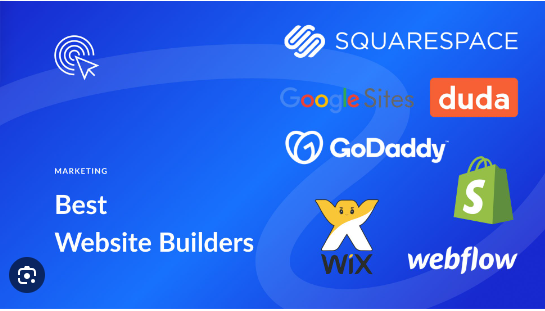Creating a website has never been easier. With a multitude of website builders available, it’s crucial to choose one that aligns with your needs. This guide reviews the top 5 website builders in 2024, evaluating their ease of use, design flexibility, e-commerce capabilities, and pricing.
Key Takeaways
- Wix
- Squarespace
- Shopify
- Hostinger
- GoDaddy
Wix
Wix is one of the affordable good website builders around, known for its ease of use and wide range of design options. Its unstructured editor is its most defining feature, allowing users to move any element to any spot on a page, providing plenty of freedom.
Key Features
- Intuitive interface with hundreds of available templates
- Widgets and mobile-specific tools for added flexibility
- Robust e-commerce tools for selling memberships and digital downloads
- Excellent uptime ensuring your site will be online
- Responsive support team
- Natively integrated payment platform
- Free and paid themes for easy customization
Pricing
Wix offers a variety of pricing plans to suit different needs:
| Plan | Price (per month) |
| Free | $0 |
| Combo | $17 |
| Unlimited | $22 |
| Business Basic | $28 |
| VIP | $39 |
Ideal For
Wix is perfect for small businesses that want to do everything without involving experienced designers. It’s also ideal for individuals seeking a diverse selection of templates and those who need an easy website builder to start a side hustle.
Wix excels in most major areas, from front-end design options to digital marketing, making it an all-in-one solution for building a successful site.
Squarespace
Squarespace is often likened to the Apple of website builders due to its sleek templates and design-forward approach. It is an excellent choice for all types of websites, including small businesses, bloggers, portfolios, and online stores. The platform is renowned for its intuitive and beginner-friendly interface, making it a favorite among creatives and entrepreneurs.
Key Features
- Beautiful Templates: Squarespace offers a wide range of polished and thoughtfully designed templates that cater to various industries.
- Drag-and-Drop Editor: The intuitive drag-and-drop editor allows users to customize their pages easily, ensuring a clutter-free design.
- Third-Party Integrations: While not as extensive as WordPress or Webflow, Squarespace integrates well with many third-party tools and apps, sufficient for most users.
- Secure Platform: Squarespace provides a secure platform, ensuring your website is protected.
- Free Domain: Premium plans include a free domain for one year.
Pricing
Squarespace offers several pricing plans to suit different needs:
| Plan | Monthly Cost (Billed Annually) | Features |
| Personal | $12 | Basic website features |
| Business | $18 | Advanced website features, including e-commerce |
| Basic Commerce | $26 | All Business features plus full e-commerce capabilities |
| Advanced Commerce | $40 | All Basic Commerce features plus advanced e-commerce tools |
Squarespace’s pricing is competitive, especially considering the range of features and the quality of templates offered. The platform’s flexibility and ease of use make it a strong contender for anyone looking to build a professional website without needing extensive technical skills.
Shopify
Shopify is an all-in-one solution and the premier choice for business owners selling products online. The platform was made for online sales, offering access to user-friendly design and e-commerce tools without sacrificing functionality.
Key Features
- Huge app marketplace for high customization
- Efficient inventory management
- Integration with many payment options
- Multichannel integration (e.g., TikTok)
- Abandoned cart recovery
Pricing
| Plan | Monthly Cost (USD) |
| Basic Shopify | $29 |
| Shopify | $79 |
| Advanced Shopify | $299 |
Pros and Cons
Pros:
- Easy to set up and use
- Scalable for businesses of all sizes
- Excellent sales features
Cons:
- Can be expensive for small businesses
- Transaction fees unless using Shopify Payments
Shopify’s suite of quality tools makes it ideal for businesses looking to sell online. It tames the complexity of ecommerce and removes many of the obstacles online store builders face.
Hostinger
Features
Hostinger Website Builder offers a solid drag-and-drop website editor that combines the best of Wix and Squarespace. It is an easy AI web page creator for beginners, thanks to its intuitive text editor. Key features include:
- AI-generated site creation in three steps (60 seconds)
- Built-in heatmap for advanced site analytics
- Language translation capabilities
Pricing
Hostinger is the cheapest website builder on our list, with plans starting at $2.99 per month for a 48-month contract. Here’s a breakdown of the pricing:
| Plan | Monthly Cost (48-month contract) | Renewal Price |
| Basic | $2.99 | $6.99 – $9.99 |
| Business | $3.99 | $6.99 – $9.99 |
- Note: The cheapest pricing is only available with a 48-month subscription, which also includes three extra months for free. Additionally, you can get an exclusive 10% off using the code: “TECH”.
Pros and Cons
Pros
- AI-generated site in three steps (60 seconds)
- Built-in heatmap for advanced site analytics
- Language translation capabilities
Cons
- No app market
- No email marketing
- No free trial or free plan
Hostinger offers a 30-day money-back guarantee, allowing you to test their AI website builder risk-free.
GoDaddy
Features
GoDaddy’s website builder is packed with a suite of business and marketing tools, including appointment scheduling, email marketing, social media management, graphic design, ecommerce, and a simple CRM. It is also very easy to use, allowing you to build your website by adding pre-made sections.
Pricing
GoDaddy offers several affordable subscription plans:
| Plan | Price per Month |
| Website Builder – Basic | $9.99 |
| Website Builder – Premium | $14.99 |
| Website Builder – Commerce | $16.99 |
Customer Support
GoDaddy provides 24/7 phone and live chat support, ensuring that you can address any problems immediately. Their knowledge center is also a valuable resource for boosting your website builder knowledge or brushing up on topics like SEO.
Pros and Cons
Pros:
- Great 24/7 tech support
- Affordable subscription plans
- Easy to use
Cons:
- Mixed reviews on customer service
- Some users report hidden fees
GoDaddy’s user-friendly interface and intuitive tools streamline the website building process, allowing you to focus on the creative aspects without getting bogged down by technical complexities.
Conclusion
Choosing the right website builder in 2024 is essential for creating a successful online presence, whether for personal or professional use. The top 5 website builders we’ve reviewed—Wix, Squarespace, Shopify, Hostinger, and GoDaddy—each offer unique features and pricing plans to cater to different needs. From ease of use and design flexibility to e-commerce capabilities and value for money, these platforms provide robust solutions for various types of users. By carefully considering your specific requirements and goals, you can select the best website builder to help you achieve your online ambitions.
Frequently Asked Questions
What is the best overall website builder in 2024?
Wix is considered the best overall website builder in 2024 due to its user-friendly design, flexible features, and robust performance.
Which website builder is the easiest to use?
Squarespace is known for being the easiest website builder to use, offering intuitive design tools and templates.
What is the best website builder for e-commerce?
Shopify stands out as the best website builder for e-commerce, providing comprehensive tools for online stores.
Are there any website builders with AI tools?
Yes, Hostinger offers time-saving AI tools that can help streamline the website-building process.
Which website builder offers the best value for money?
GoDaddy is known for offering the best value for money, combining affordability with a range of useful features.
How do I choose the right website builder for my needs?
The right website builder for you depends on your specific requirements and goals. Consider factors like ease of use, design flexibility, e-commerce capabilities, and pricing.

